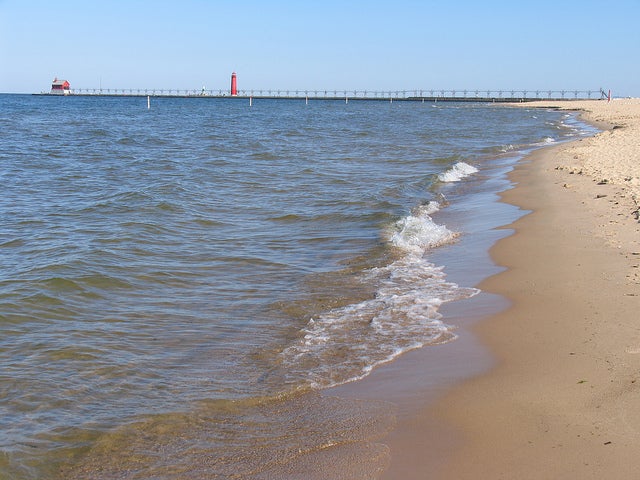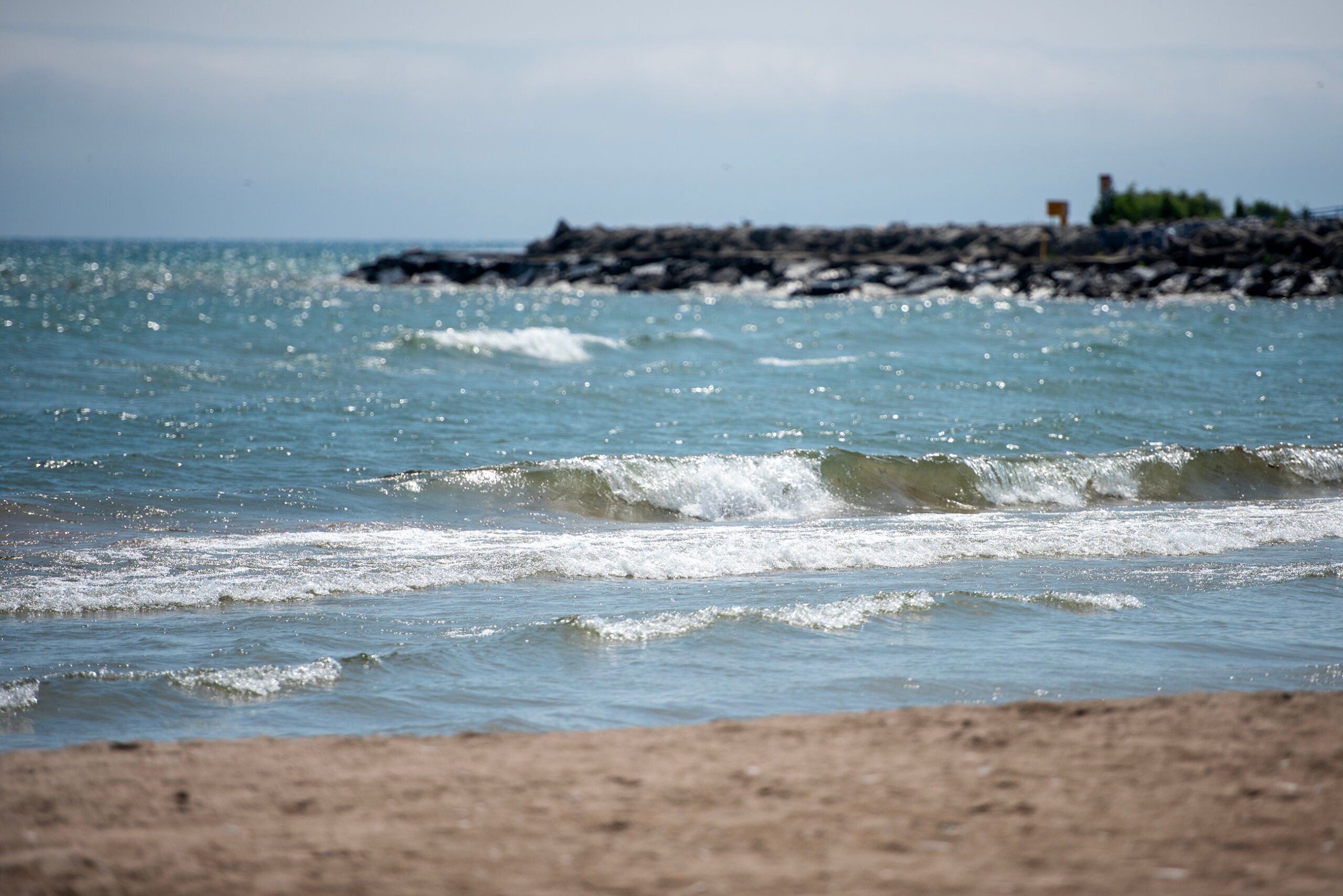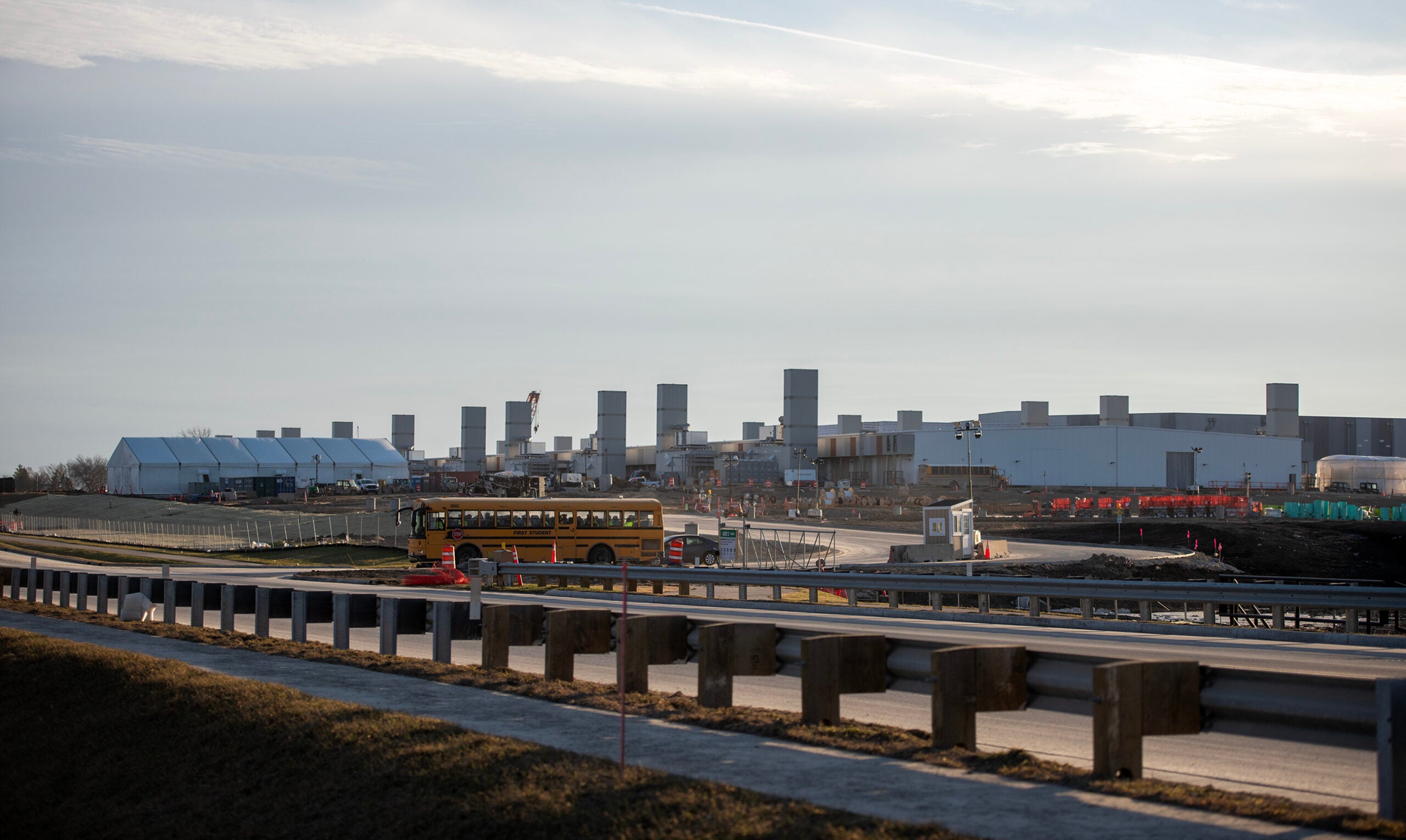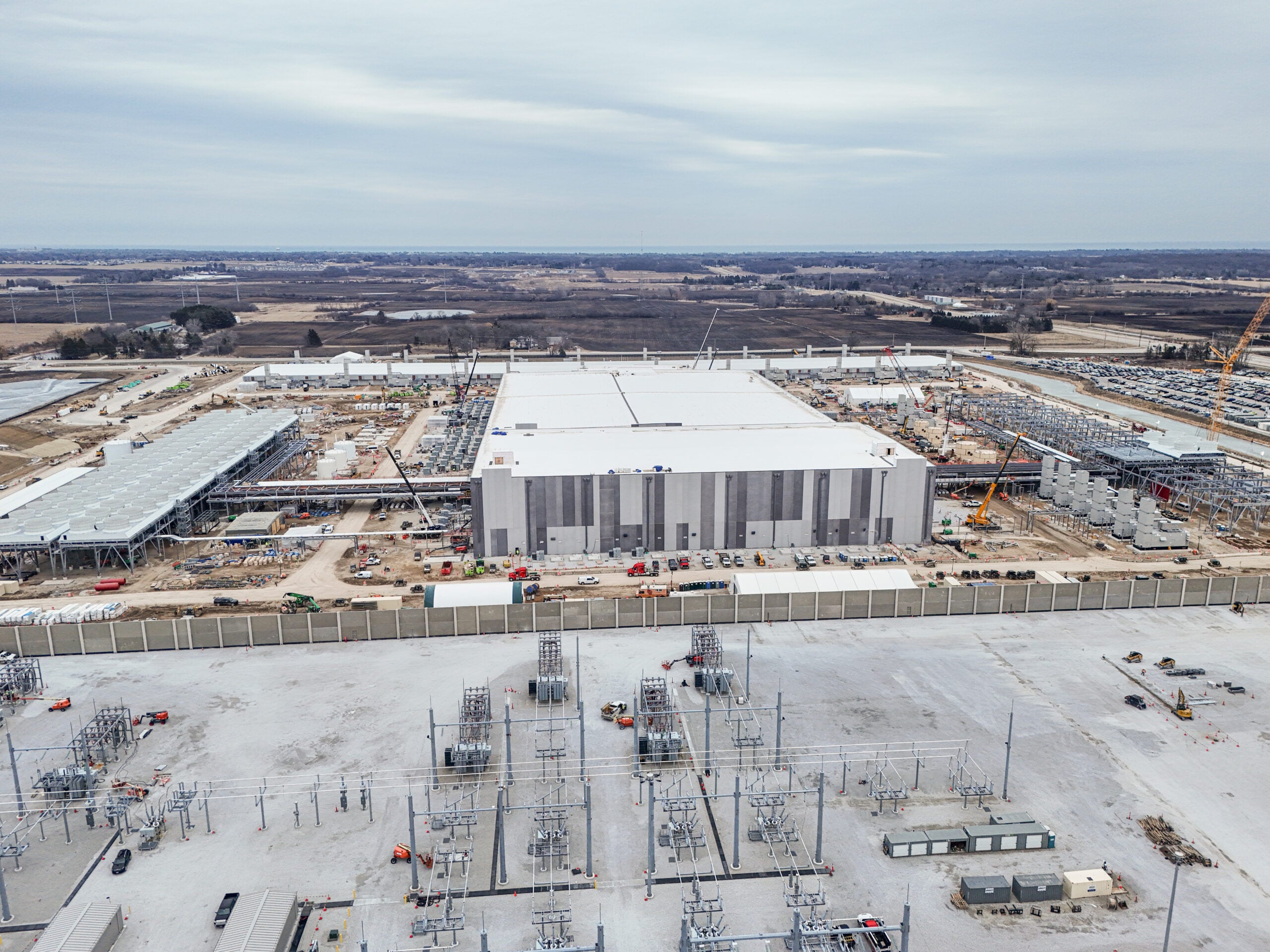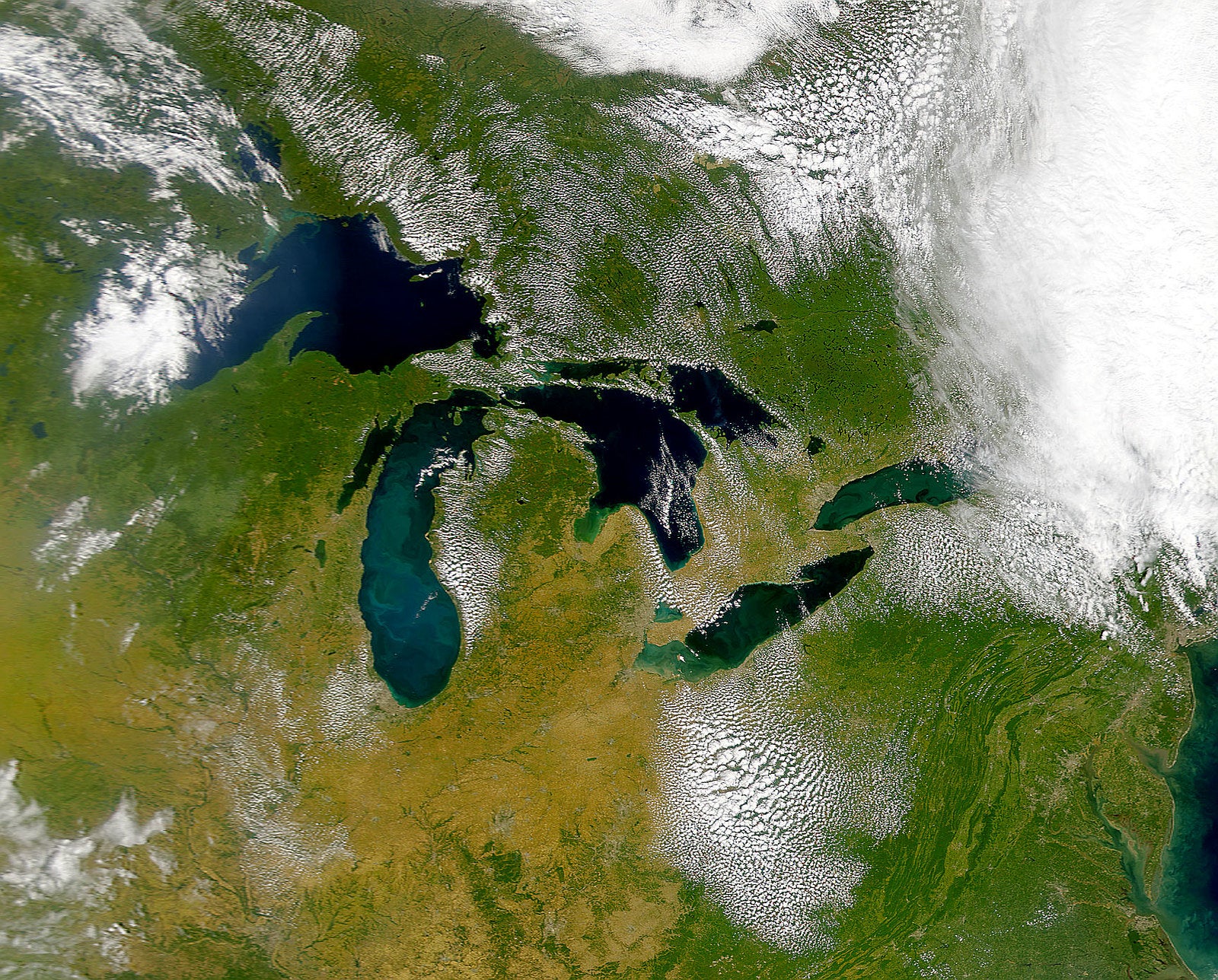New development is driving one village’s request to withdraw an average of 1.2 million gallons of water per day from Lake Michigan.
The Village of Somers in Kenosha County submitted an application for a water diversion to the Wisconsin Department of Natural Resources last month as part of compliance with the Great Lakes Compact. The pact between eight Great Lakes states bans diversions of Great Lakes water except for communities like Somers that straddle the Great Lakes basin line or reside within a county that straddles the boundary.
Somers’ proposal for a water diversion is the fourth request to be considered since the signing of the compact in 2008, according to the DNR.
News with a little more humanity
WPR’s “Wisconsin Today” newsletter keeps you connected to the state you love without feeling overwhelmed. No paywall. No agenda. No corporate filter.
Village officials want more water from Lake Michigan as they expect to see growth on the west side of the village that lies outside the basin.
“Now’s the time to do it, and we had some bigger developments that needed water,” said Jason Peters, village administrator.
Those projects include construction of the Pritzker Archives and Memorial Park Center, which will store archive materials from the Pritzker Military Museum and Library in Chicago. The village is also anticipating long-term growth that includes a mix of commercial, industrial and residential development across roughly 2,300 acres where water would be diverted just outside the basin. Somers could withdraw a maximum of 2 million gallons per day under the proposal.
The village’s application would not require review by all Great Lakes states and Canadian provinces under terms of the compact, said Adam Freihoefer, DNR water use section chief. He said the amount of water that would be used and not returned to the lake is far below the 5 million gallons per day threshold that would trigger regional review.
“In the case of the village of Somers, they’ll just they’ll need state approval — DNR approval — for this application of what they’re proposing,” said Freihoefer.
Proposals to divert water from Lake Michigan have been the center of controversy in Wisconsin.
Most recently, environmental groups challenged Racine’s plans in 2018 to divert an average of 7 million gallons of water per day from Lake Michigan as part of Foxconn’s plans to build a facility to manufacture LCD monitors in Mount Pleasant. An administrative law judge upheld the DNR’s approval of Racine’s diversion in 2019 despite claims the agency disregarded a requirement that the diversion be used for public water supply purposes.
“We did disagree with how DNR applied that there,” said Rob Lee, staff attorney with Midwest Environmental Advocates. “This application does not seem to divert water solely for an industrial use. And so, perhaps some of those concerns aren’t there, but we still do have to review the application and go through due diligence and make sure it meets all the requirements of the compact and Wisconsin’s implementing legislation.”
Waukesha has also battled for years to bring Lake Michigan water to the city to resolve issues with high radium concentrations in the city’s drinking water wells, which requires costly treatment. The city is outside the Great Lakes basin, but it resides within a county that straddles that boundary.
Waukesha’s request to divert on average 8.2 million gallons of water per day required review and unanimous approval of all eight Great Lakes states under the compact. The city is the first and only such community to receive approval under terms of that agreement in 2016. But, officials have still faced hurdles with the water diversion effort. including a lawsuit from the Village of Waukesha that was recently dropped, according to the Milwaukee Journal Sentinel.
The Somers’ request for a water diversion is no surprise to Marc Smith, policy director of the National Wildlife Federation. He said southeastern Wisconsin struggles with water quality issues related to radium concentrations, as well as the decline of water levels in the region’s deep sandstone aquifer.
“It won’t be the last (request),” said Smith. “”I think there’ll be many more given the drain of the aquifer in this area and the competing need for water in this area.”
Smith noted the water withdrawal would pose no significant impact to Lake Michigan and water levels. He added that all water returned to the Great Lakes basin would be treated by the Kenosha Water Utility.
Somers buys water from the city’s water utility, but the village operates its own water system. The Kenosha Water Utility said its approved water withdrawal amounts and facilities are adequate to meet the village’s diversion request if approved. Somers would need to build out infrastructure to serve customers in the diversion area.
DNR staff are reviewing the application and plan to hold a public hearing and comment period later this spring.
Wisconsin Public Radio, © Copyright 2025, Board of Regents of the University of Wisconsin System and Wisconsin Educational Communications Board.

